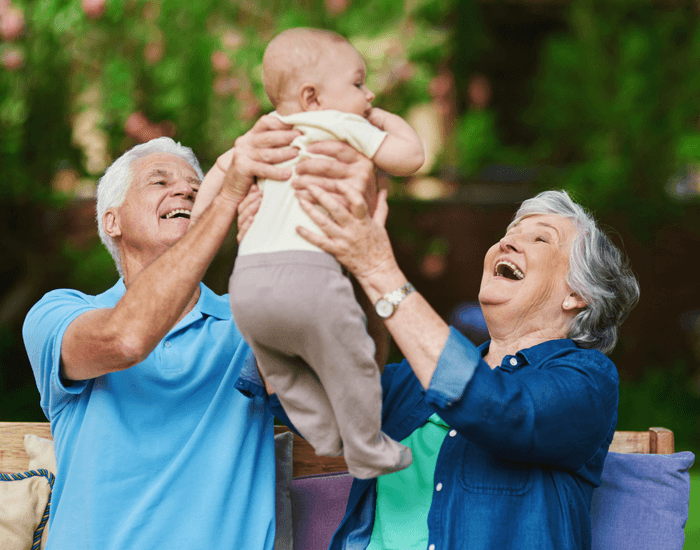 Sometimes establishing paternity is not as easy as it sounds. If the possible father is simply not available for testing, a grandparent DNA test can be performed by a DNA testing lab with experience in this type of analysis. The test shows whether or not a child is related to the grandparents—on the possible father’s parents’ side—and thereby helps to establish the identity of the child’s biological father. This same test can help determine maternity too, if needed.
Sometimes establishing paternity is not as easy as it sounds. If the possible father is simply not available for testing, a grandparent DNA test can be performed by a DNA testing lab with experience in this type of analysis. The test shows whether or not a child is related to the grandparents—on the possible father’s parents’ side—and thereby helps to establish the identity of the child’s biological father. This same test can help determine maternity too, if needed.
Reasons to Take a Grandparent DNA Test
Many grandparents initiate this test because they are concerned that they might not be the actual biological grandparents of child/children! They are concerned, and simply want to know the truth. Being a grandparent requires emotional and financial support for many years, and if there is a question about the paternity of a grandchild, the grandparents want to know for sure. Aside from peace of mind, there may also be legal reasons for wanting to confirm a biological relationship.
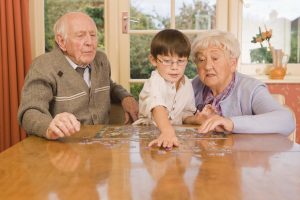
Reasons to confirm paternity include:
- Health concerns
- Death of potential father
- Custody issues
- Heritage and inheritance concerns
- Questionable paternity of child
- Peace of mind
How It Works
Unlike a straight paternity test, this type of analysis is a bit more like putting together a DNA puzzle: when more participants contribute their DNA, the more pieces to the puzzle can be assembled to form a complete picture.
Who needs to provide DNA for a grandparent DNA test:
- One or both parents of the possible father
- The child
- The mother of the child, if possible
The test is most accurate when there are two grandparents to test—both of the possible father’s parents. In the absence of one grandparent, the test can still be administered. However, it’s important to know the results may not be as conclusive as they need to be to establish paternity and/or maternity. If at all possible, the child’s mother should also participate to help strengthen the chances of obtaining conclusive results.
DNA is collected easily and quickly with simple, painless cheek swabs.
IMPORTANT:
- If you need results for legal reasons (inheritance or immigration, for example), at-home testing is not an option. For court-admissible results, you must call the lab ahead of time to arrange for a legal, witnessed test
- If you do not have legal authority to act on behalf of a minor child, the burden is on you to obtain all necessary consents before submitting the minor child’s DNA for testing
The Test Can Help to Protect Grandparent Rights
As a paternal grandparent, you really don’t know whether your grandkids are truly yours. Although you love and cherish each child, nothing can replace the reassurance you get from knowing for sure if those children are biologically related to yout. Fortunately, you now have the option to request a grandparent DNA test to learn the facts.
There may be some reasons why the child’s mother refuses to allow a grandparent DNA test. In these cases, you may be able to petition the courts for the test to be administered.
Final Thoughts about a Grandparent DNA Test
Grandchildren are one of life’s greatest joys, but if you have any doubts about a biological relationship, it’s wise to ask some questions now in order to prevent a possible broken heart down the road. Contact us to make arrangements for a grandparent DNA test today. A kind, experienced representative from DDC will be happy to explain the details with a simple and completely confidential phone call.

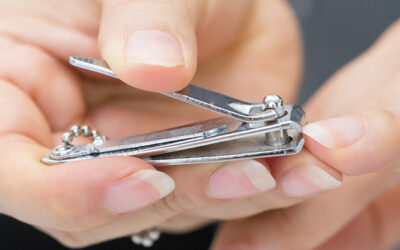
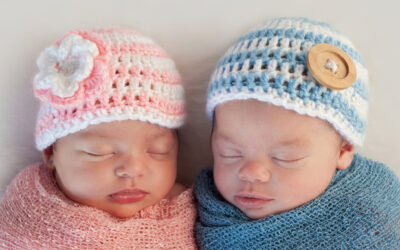
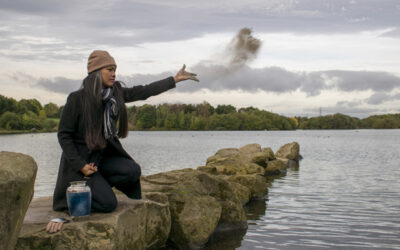
My daughters dad (Bryan) is absent and 2 months ago my daughter (Kelsey) passed away she has a 4 month old son. Can there be a dna test done on Bryan’s parents and my daughters son to prove Bryan is his grandson my daughters dad. So it would be great grandson and great grandparents
Hi, Brandi. Unfortunately, great-grandparent is too distant a relationship for this type of testing.
My son is incarcerated in Michigan.
I know my oldest grand daughter is not his. I wonder about the other 2. Can I legally do anything with him being incarcerated?
Hi, Kristy. You should consult with a family-law attorney to see if, as the grandmother, you have any legal recourse. If you were to do a DNA grandparent test with any of them to see if you share a biological relationship, you would need to obtain permission from their legal guardian – most likely their mother – if the grandchildren are minors. Good luck!
What dose it mean when a grandparent DNA test comes back 73% to her son’s baby
Hi, June. It means that the grandparent and tested child do not share enough of the same DNA to obtain a conclusive result. In these types of situations, we recommend adding the mother of the child to testing.
My DNA results are 14.4%. is it likely that the child is my granddaughter
Hello, Jacqueline.
Understanding results for a grandparent DNA test is a little tricky, since there can never be a straight “yes or no” answer in relationship testing. Calculations for relationships such as grandparent, avuncular (aunt/uncle), and siblings all involve statistics, and a probability of relationship is given as a percentage in the report:
90% or higher: the relationship is supported by DNA testing
9% – 89%: inconclusive result, and additional parties need to be tested
Below 9%: the relationship is not supported by DNA testing
If a probability of relationship (PRI) of 92% is given for a grandparent test, the result could be understood as: “There is a 92% probability that the persons tested share a grandparent/grandchild relationship.”
Hello. I received my results today 8/3/21 for grandfather grandson dna test. Relatedness 18 and probability of relatedness 94.7. Is he my grandson?
Hello, Willmon. A 94.7% probability of relatedness is considered an inclusion for grandparent testing. You can read the result as “The child tested is the grandchild of the male tested with a 94.7% probability of relationship.”
I am trying to figure out grandfather to granddaughter if 4.6% relatedness is my granddaughter
Hello, Brandi. That percentage is an exclusion, meaning there is not a biological relationship.
Hello my questions is My son doesn’t want to do the dna test because the mother don’t want the dna test done I’m supposedly the grandparent can I do the dna test because the mother and my son don’t want to take the dna test
Hi, Tasha. Unless you have permission from the legal parents, you cannot.
Hello
My question is
Grandmother and Granddaughter dna result is 3.4 % probability
I really don’t understand it
So I ask
Is my granddaughter my grandchild or probably not my grandchild
Your help in this matter would be much appreciated
Hi, Joan. A 3.4% probability of relationship for a grandparent test is considered an exclusion; there is no biological grandparent/grandchild relationship.
Hello
How can I establish a home dna between my son and his grandfather. Where can i find the cost?
Hi, Ashley. Just give our team of experts a call at 800-681-7162 (M-F, 8 AM to 8 PM Eastern), and we’ll be able to provide price information and set up the test if you decide to do it.
How do I get somebody who’s incarcerated tested for a DNA test. It’s not for court . We just wanna know if he’s the father
Hi, T. You would need to ask the facility if they are willing to allow DNA tests. If they are, we can send testing materials directly there. Contact us at 800-929-0847 for a free consultation and expert advice.
My question is my mother tested her probably grandson and the result says 40% what does that mean. Is he related to us or not?
Hi, Dee. That is considered an inconclusive result. Including the mother of the child in testing would really help to optimize the chances of obtaining conclusive results.
If a man is looking for his dad, would DNA from his grandmother be a factor in determining who the father is or would that have to come only from his grabdfather.
Hi, Carla. It depends on what type of testing is going to be performed to help determine the relationship. The paternal grandmother’s DNA is helpful in doing an STR test with the man, especially if the man’s mother is also able to participate. Ideally, the paternal grandfather would also contribute his DNA to the STR test. If the test is Y-STR that analyzes the male Y chromosome passed down across generations through the male line only, then the grandmother’s DNA is not helpful.
Hi I had a test done with a potential grandparent and it says the results are 5.7 percent does that mean she’s not my sons grandmother ?
Hi, Courtney. That is an exclusion result, meaning she’s not your son’s grandmother.
My husband and I did a grandparent test. His probability came back at 99% and mine was 23%. We know the mother of the child also had relations with my husbands nephew. Could this be the reason my percentage was so low? Or could I still be the grandmother at 23%?
Hi, Samantha. Your lower percentage is an inconclusive result and not an exclusion, so you could still be the grandmother at 23%. It just means that in order to obtain a conclusive result, other people’s DNA (such as the child’s mother) would need to be added. Your husband’s result is an inclusion, which confirms the relationship between your grandchild and him.
Hi there. I took a grandparent/grandchild test. It says the kinship index is: 0.50 and the probability is 33.3% What does this mean?
Hello, Stephanie. That result is considered inconclusive meaning the relationship may or may not be resulted by the genetic data shared between the tested parties; the bottom line is that more test participants need to be added such as the child’s mother and/or the other paternal grandparent.
I want to know if I (grandmother) can compare my dna with my sons possible son and tell if he is the father. He is incarcerated now. Can work with the facility he is incarcerated to get his DNA?
Hi, Norma. Yes, we do grandparent testing all the time when a possible father isn’t available for testing. If the child is a minor, you would need consent from the child’s mother to test. In fact, it’s best if she contributes her DNA also. Some incarceration facilities permit paternity testing while others don’t. I suggest you contact us directly for a free confidential consultation at 800-681-7162 (M-F, 8 am to 8 pm Eastern).
What percentage determines if a person is the grandparent with just the grandfather’s and child’s DNA?
Hi, Nicole. In most cases, 90% or above is considered conclusive.
I need to find out if my grandson is My grandson without informing my son or the mother is this possible
Hi, Tanya. If your grandson is a minor child, consent by a legal parent is required.
Would like to know if my grandchild is mine father and mother died
Hi, Nomandia. Call us directly for a consultation at 800-681-7162 (8 AM to 8 PM Eastern, M-F).
Is 71.4% high enough for me to be sure the child is my grandchild. Only myself and child were tested
Hi, Michele. That number is considered an inconclusive result, so the answer to your question is no.
I am the Potiental grand mother. Myself and my grandson was tested. The results cam back and it reads as following. Combines kinship Index 6.93 and relatedness is 87.4% probability. What does that mean and also what does 6.93 to 1 mean.
Hi, Jennie. 87.4% probability of relatedness is considered inconclusive, but it’s very close to the conclusiveness threshold of 90%. The combined index can be read this way: The odds of the tested parties sharing a grandparent/grandchild relationship are 6.93 to 1. I highly recommend that you add the mother of the child to the test, if possible. That may be helpful in strengthening results from inconclusive to conclusive.
Have you ever known the percentage to be somewhere around this 87.4% probability and relationship is around 6.93 to 1, and after adding the mother’s DNA it is later determined not to be a relationship between the grandparent and child?
It was a test done on me (the alleged grandma) and the child the percentage is 0.044 what does that mean? Can you explain ?
Hi, Camyriah. That percentage is an exclusion, meaning you’re not related to the child tested.
Can CAS do grandparent DNA testing without the father? My husband and myself are fighting for custody of my grandson but I need to be sure I have rights To fight for him. My son isn’t in the picture as he is abusive.
Hi, Nicole. Yes, courts order grandparent testing for custody all the time when the possible father isn’t in the picture.
If an adult child wants to know who their father is but he isn’t willing to do a DNA test. Can his mother and father (grandparents) agree to a DNA test for the adult child?
Hi, Kasey. Yes, absolutely. DDC performs grandparent testing. For a free confidential consultation, contact us directly at 800-681-7162 (M-F, 8 AM to 8 PM Eastern).
My daughter baby and grandmother had one done. It can back 83%. Is her son the father
Hi, Angela. That is considered an inconclusive result.
Hi what will be the result of paternity testing if the grandfather takes as the father of his grandson coz he is adopted.needed by the son who is actually grandson for citizenship and passport application.thanks
Hi, Venus. A grandfather only shares 25% of the same DNA as the grandson, whereas a father shares 50%. The two biological roles are not interchangeable. If the grandfather tests as the father, the result will be an exclusion.
so what is a conclusive test result percentage? I called and someone told me closer to 99 means they are related and less than 50 means they probably aren’t.
For a grandparent test, anything 90% and higher is considered conclusive.
If a child and paternal grandmother were tested and the results came back as 25.2% does that mean the child is the biological grandchild? Or does it mean that perhaps they are related? Or should someone else be tested with the grandchild and grandparent?
Hi, Jamie. A probability of relationship of 25.2% for grandparent testing is considered an exclusion (not related). We always recommend that the mother of the child contribute her DNA too, in order to strengthen results. Ideally, both paternal grandparents would test + the mother + the child.
Hi, alleged grandmother and daughter only done test, it came back 0.8% or 0.0089. What does that mean
Hi, Monique. Do you mean grandmother and granddaughter, not daughter? That percentage of relationship is an exclusion, meaning there is no biological relationship.
Yes, granddaughter. So that would mean there would be no need for the alleged father to do a test then would it?
It’s always better if the alleged father tests instead of a grandparent, but you are correct.
I suspect that my paternal and maternal grandparents are one in the same. I think my mother’s brother, my uncle, is my father. They both have always been sexual deviants. He has always wanted to be weirdly close to me. And a few days ago we were talking about his moles. He said when I get his age I will get them too, because I’m his. He said he meant because I’m his niece. My other 2 uncles have admitted he had sex with their half sister. Thank God I don’t have kids if this is true. Can a DNA test confirm my suspicions?
Hi, Nick. Because of the possibility of incest in this scenario, I suggest you contact our experts directly and consult on what the possibilities for testing might be. If you are in the United States, call 800-681-7162 (M-F, 8 AM to 8 PM Eastern). If not, you can start the conversation by emailing [email protected].
Hello my niece and my mom are being tested but the mother refuses to test because my brother wont say wether my nieces is his or not. What are the chances of my mom and my niece being related? Like what percentage can that give?
Hi, Carmen. For a grandparentage test, any percentage of 90% or higher is considered an inclusion.
Will the percentage still be that high if the mother isnt tested?
That really depends on the genetic information for that individual test, but it’s always best if the mother can test too. The chances of obtaining conclusive results are much higher.
I am the grandmother, supposedly my son is the baby’s father….can I do DNA test with the baby WITHOUT telling my son or the baby’s mother?
Hi, Bernadette. When DNA-testing a minor child, a legal parent’s consent is required.
question I need to find out if my grandson is biologically my son kid either the the mother of the child or my son will establish paternity and i need it for custody reasons of my grandson so I was wondering if there is a way to establish paternity with just me grandmother and baby my grandson?
Hi, Paula. If the mother and your son don’t agree to DNA testing, you’ll need to consult with a family-law attorney to see what your options are for doing a grandparent test. We cannot perform testing on a minor child without the consent of a legal parent.
My father passed away. The alleged grandfather passed away also. Can I test a half brother to my dad to see if I’m related to them?
Hi, Michelle. For this type of testing, a half-uncle is most likely not a viable testing partner to obtain conclusive results. I suggest you contact our experts directly so they can talk you through all your options: 800-929-0847 (M-F, 8 AM to 8 PM Eastern).
My sons father is deceased. A paternity test was done between my son and the grandmother. It came back 13.6%, which was an inconclusive result. There are NO other possible fathers, so what do you recommend to solve this issue. Oh, and only the grandmother and child were tested.
Hi, JJ. You can test again and include your DNA in the test.
My Gbaby is 52.3%
With a 1.1189 CRI
WHAT does that mean
Hi, Linda. That is an inconclusive result. Did you include the mother of the child in testing? That can really help to obtain more conclusive results.
No it was just me and the child
I suggest you include the mother if she is willing. Sometimes conclusive results can be obtained with just one grandparent and a child, but not always. It all depends on the genes you happen to share in common. Adding another grandparent and/or the child’s mother will yield a conclusive result.
My results(I am the child) for the grandparent test came back with the CPI of 0.00003155 and a probability of relation 0.003% it also says the likely hood of her being a biological relative is 31,698 to 1. And also states the prior probability would have been 0.50. Please explain. Im thinking about taking one with the man who is supposedly my father but he is incarcerated.
Hi, Kali. That result is considered an exclusion (you do not share a grandparent/grandchild relationship).
Hi I took a grandparent DNA test. Only myself and the child was tested. The results were 78.2% is the child my grandson.
Hi, Talonda. That percentage is considered an inconclusive result, so it’s neither yes nor no. If possible, please include more participants in testing…especially the mother of the child.
Do an dna with my grandmother the results shows CRI 0.05 and probability of grandmother to child is 4.40% what means I don’t understand
Hi, Felicia. Those number show an exclusion. In other words, you and your grandmother don’t share enough DNA to be considered biological relatives.
Hi, completed a DNA on myself and my potential grandson because my son and husband are no longer here. The results came back as 79.2% ( is this considered conclusive or inconclusive) please help.
Hi, Angelina. That is an inconclusive result. To help strengthen results, it’s important to add the mother to testing if she is willing.
Mother,Grandfather and child tested. Results are 99.8.
Are these 100% positive results that the Grandfather is related
Hi, Veronica. Yes, that is a very conclusive inclusion result for a grandparent test.
Father is deceased. Mother is unwilling to be tested. I am paternal grandmother. I have legal custody. How accurate would this test be with just my DNA and grandsons?
Hi, Crystal. Whether or not you obtain a conclusive result depends on the DNA data. In many cases, we can obtain conclusive results for a grandparent test with just the child and grandparent but in other cases, we need to include the mother’s DNA.
My son was told he fathered a child. The child is in the legal custody of his maternal grandparents. The grandmother was willing and eager to allow the child to be DNA tested through the Ancestry.com site and by comparing my dna to his we were matched as grandson and grandmother. She neglected to tell me that her husband was not on board as far as allowing the child to be told or even know of his father or our family so cut all contact off with me. Can I go to court to ask for visitation with my grandson and would they ask her to submit to another DNA test that is accepted by the courts since the d a tests done on ancestry com are not?
Hi, Kimberly. That is a question for a family-law attorney in your area. Good luck!
I’m the paternal grandmother and test results came back at 2.6% so does that mean were not related?
That is considered an exclusion, yes, so you are most likely not related.
I did a grandparent test with myself, my daughter and her grandmother the results came back as 0.00 and 0.19% I was not aware that I you should test both grandparents what does this mean?
Hi, Kasey. Testing both grandparents can often strengthen results. But since you participated, that helps tremendously too. The result you were provided is an exclusion, meaning your daughter and her grandmother do not share a biological relationship. Chances are that testing both grandparents would not have made a different to the outcome of this test.
I performed a test with my son, me, and his grandmother ( on his dads side). What is the percentage that I should be looking out for to be considered “related”?
Hi, Alexis. For single-grandparent testing, any percentage of probability higher than 90% is considered conclusive.
Im just confused because i had performed a dna test with the father and it came back 99.999999% , but since he denied it the grandmother wanted tested ( me her and the baby) , but our results came up 80% which I know is inconclusive. Is that normal? Like i know hes the father.
I did a test with just my daughter and her potential grandmother. I did not include a sample from myself. Results said “alleged grandmother is 12 times more likely to be unrelated to the child with a probability of 92.56%” then says “grandparent probability <1, likelihood 7.43%”
What does this mean? And Could this be wrong because I didn’t include a sample?
Also I did not test thru this site but I saw you were giving very helpful answers
Hi, Jessica. It would appear from the data you provided that the result of the grandparent test was an exclusion, meaning they are unrelated. The conclusiveness of this result would suggest that your DNA most likely would not have helped to strengthen the data one way or the other.
Can me and my wife test for grandparents and include the possible grandchild for our own use and not for legal purposes without the Childs drug addict mothers permission? Our son is dead due to his wifes drug use. We just want to know if he is our grandson.
Hi, Gary. My sincere condolences on the loss of your son. When testing a minor, permission must be obtained from a legal parent or guardian. If you do not have legal-guardian status, you may want to seek out the advice of a family-law attorney to determine what your options are.
I took a grandmother Dna test with my alleged granddaughter and came back as combined kinship index of 0.098, probability: 8.9%. I believe the lower the kinship value is below 1.0, the lesser the likelihood that we are related. I am really unsure how to read this, please help. Are we related?
Hi, JP. That data is considered an exclusion and you are most likely not related.
Good morning, my question is: my mother was tested with a daughter who is complaining to be her granddaughter. So, the result was 62.7%. this result can approve the blood relationship of being her parternal grandmother? Please help us.
Hi, Christine. The laboratory only answers the question it is asked to answer. In this case, the question is, “Am I this woman’s granddaughter?”. At 62% probability of a grandparent/grandchild relationship, this result is inconclusive. You cannot assume a blood relationship, let alone a grandchild/grandmother relationship, based on this test result. It would be helpful to add more DNA to the test, such as the younger woman’s mother’s DNA, which could help to provide more conclusive results.
My son is incarcerated and we’ve been trying to establish paternity of his son. I got a paternity test and put my dna in place of my son’s, then tested it against my alleged grandson’s DNA. The results came back 0%. My question is does it matter if I used a paternity or grandparent test? Shouldn’t at least some of my DNA matched with my alleged grandson? I recently just learned about the grandparent test yesterday
Hi, Barb. No doubt a lot of the DNA matched with your alleged grandson. But answers for maternity/paternity are straight yes and no…either you’re related to the child with a probability of 99.9% or higher or you’re not with 0% probability of paternity. What confuses me is you said you did a paternity test. Since you are a woman and say you did a paternity test, the lab where you tested should have suspended testing once they discovered your DNA was female instead of male. I suggest you start from scratch and order a grandparent test. We can help you with that at 800-929-0847.
I did a grandmother granddaughter DNA testing and the results came back combine kinship index 38.27, probability 97.4%. is she my granddaughter?
Hi, Leslie. Yes, that is considered a conclusive result for an inclusion. 🙂
Hi. The alleged father in our case is deceased. My son took a at home dna test with the possible grandmother. It was only them swabbed and my son ate chocolate before one of the swabs so it was brown. The possible grandmother was told by the company that she bought the wrong test and if she sent and additional payment they would make it a grandmother test. She did so and about a week later the results came back as a %2.8 percent chance of relation. What does this mean ? Please help
Hi, Anonymous. The probability of relationship percentage you provided is considered an exclusion, meaning the child and grandmother most likely do not share a biological relationship. Your son eating chocolate before swabbing wouldn’t change the DNA data at all…it can only affect the quality of the sample. If there had been an issue with the swabs, the lab would have suspended testing and requested fresh samples.
Hi we did granddaughter nd grandmother testing it came 1.5% more likely that we relate.. I don’t understand the statement
Hello, Kgadi. Please contact the lab where you tested or the business from whom you ordered the test for an explanation of your results. Without all the information in front of me, I cannot comment.
HI I DID A DNA TEST WITH GRANDPARENTS AND THE KINSHIP INDEX WAS 1.24 and the probability was 55.5% Can u explain this more
Hi, Aisha. That is considered an inconclusive result.
Calculations for relationships such as grandparent, avuncular (aunt/uncle), and siblings all involve statistics, and a probability of relationship is given as a percentage in the report:
90% or higher: the relationship is supported by DNA testing
9% – 89%: inconclusive result, and additional parties need to be tested
Below 9%: the relationship is not supported by DNA testing
If a probability of relationship (PRI) of 92% is given for a grandparent test, the result could be understood as: “There is a 92% probability that the persons tested share a grandparent/grandchild relationship.”
There was a dna test done between just my daughter and the alleged paternal grandfather.
Results came back as:
Combined kinship index: 0.014
And probability: 1.4%
How do I read these results?
Hi, Haley. These are considered “exclusion” results. Your daughter and the man tested do not share a grandfather/granddaughter relationship.